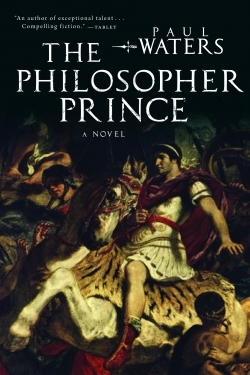The Philosopher Prince
In the ancient Roman Empire, the halls of power were twisted places where no one could be trusted, and betrayal and death lurked just around the corner. In The Philosopher Prince, one young soldier must learn what it means to be a man of courage, loyalty, and virtue in the midst of the battle for power. And he must discover how to survive in a dangerous world without being tainted by the immorality around him.
The novel highlights the importance of standing up for what you believe in, even when everyone else looks out for themselves and caters to the prevailing winds of power. It’s a story of looking to higher truths rather than simply what is good for you at the moment, things such as faith—even when it is forbidden—and the needs of others—even when it means sacrificing yourself. And it’s a tale of how power can corrupt and how, sometimes, the best politicians are the ones who don’t want the job at all. Sound familiar?
The novel tells of Drusas, a young soldier fighting for his family’s land and the good of his country, who is inadvertently drawn upwards into powerful circles. He meets Julian, the “Philosopher Prince,” a beloved military leader with enemies conspiring against him. Those enemies set Julian up to fail, but instead, with each unexpected victory, he grows in fame. Unfortunately, “everyone knows the emperor hates heroes.” The more Drusas, along with his lover and fellow soldier, Marcellus, become Julian’s trusted friends, advisors, and military leaders, the greater the danger. For the more Julian’s enemies attempt to bring him down, the more he rises—until some want him to be emperor. That’s treason. And that means death—for all of them.
Paul Waters, who also wrote The Republic of Vengeance and Cast Not the Day, demonstrates a great love and respect for ancient Roman history. Although sprinkled with battle scenes and the rough lives of warriors, his writing focuses more on the drama among the leaders. As such, this book isn’t for those who prefer a constantly fast pace. But for readers who enjoy more character-driven drama, it offers an intriguing, page-turning plot and compelling story. And while this book will not resonate with those who are uncomfortable with Christians being cast as the bad guys, for readers seeking juicy, historical drama (and perhaps something other than English kings and queens), The Philosopher Prince offers a fresh world to explore.
Reviewed by
Diane Gardner
Disclosure: This article is not an endorsement, but a review. The publisher of this book provided free copies of the book to have their book reviewed by a professional reviewer. No fee was paid by the publisher for this review. Foreword Reviews only recommends books that we love. Foreword Magazine, Inc. is disclosing this in accordance with the Federal Trade Commission’s 16 CFR, Part 255.

